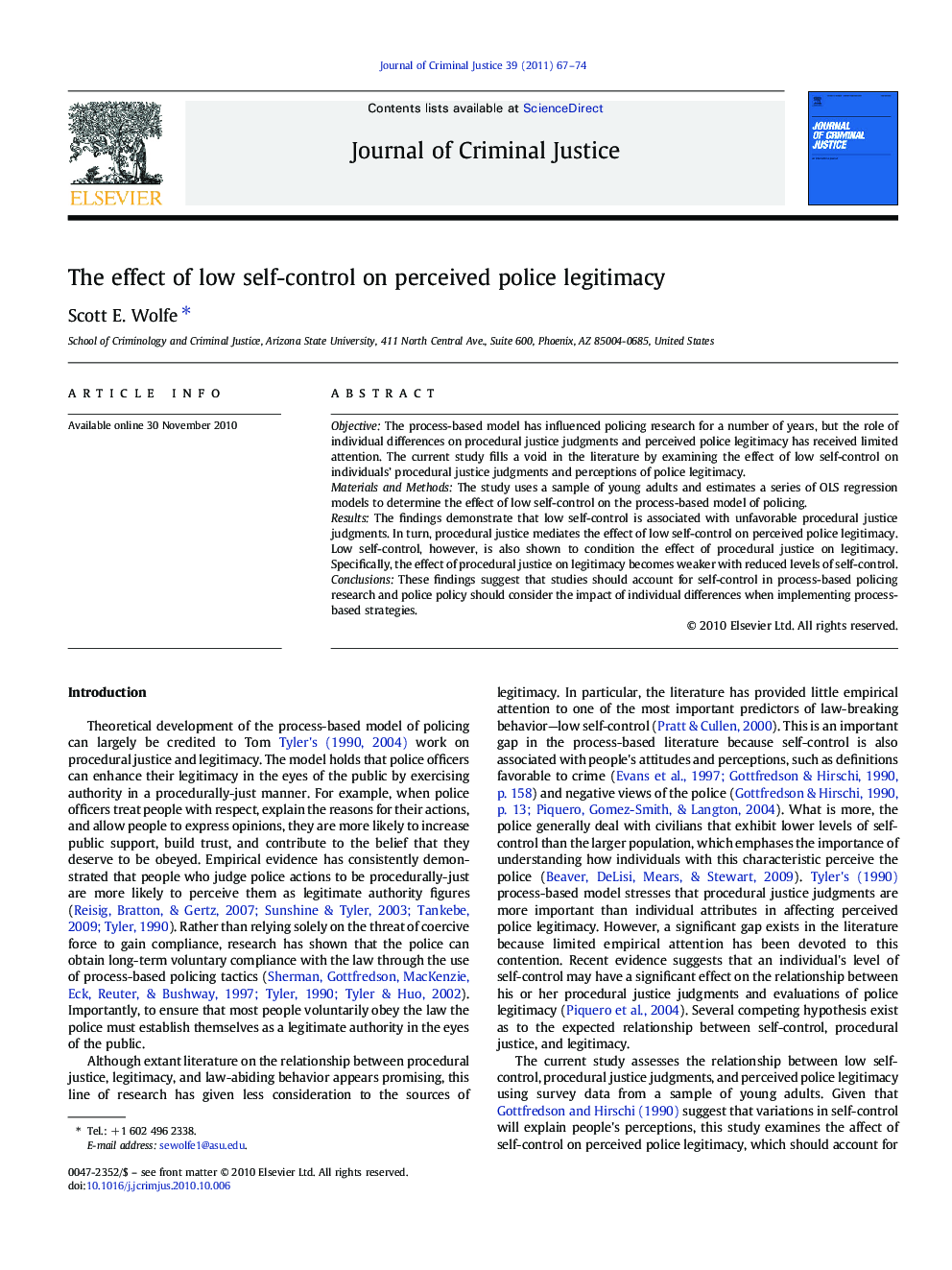| Article ID | Journal | Published Year | Pages | File Type |
|---|---|---|---|---|
| 883096 | Journal of Criminal Justice | 2011 | 8 Pages |
ObjectiveThe process-based model has influenced policing research for a number of years, but the role of individual differences on procedural justice judgments and perceived police legitimacy has received limited attention. The current study fills a void in the literature by examining the effect of low self-control on individuals’ procedural justice judgments and perceptions of police legitimacy.Materials and MethodsThe study uses a sample of young adults and estimates a series of OLS regression models to determine the effect of low self-control on the process-based model of policing.ResultsThe findings demonstrate that low self-control is associated with unfavorable procedural justice judgments. In turn, procedural justice mediates the effect of low self-control on perceived police legitimacy. Low self-control, however, is also shown to condition the effect of procedural justice on legitimacy. Specifically, the effect of procedural justice on legitimacy becomes weaker with reduced levels of self-control.ConclusionsThese findings suggest that studies should account for self-control in process-based policing research and police policy should consider the impact of individual differences when implementing process-based strategies.
Research Highlights► Level of self-control affects peoples’ perceptions of procedural justice and legitimacy. ► Procedural justice mediates the effect of self-control on perceptions of legitimacy. ► Self-control conditions the effect of procedural justice on perceived legitimacy. ► The process-based model of policing is affected by individuals’ levels of self-control.
